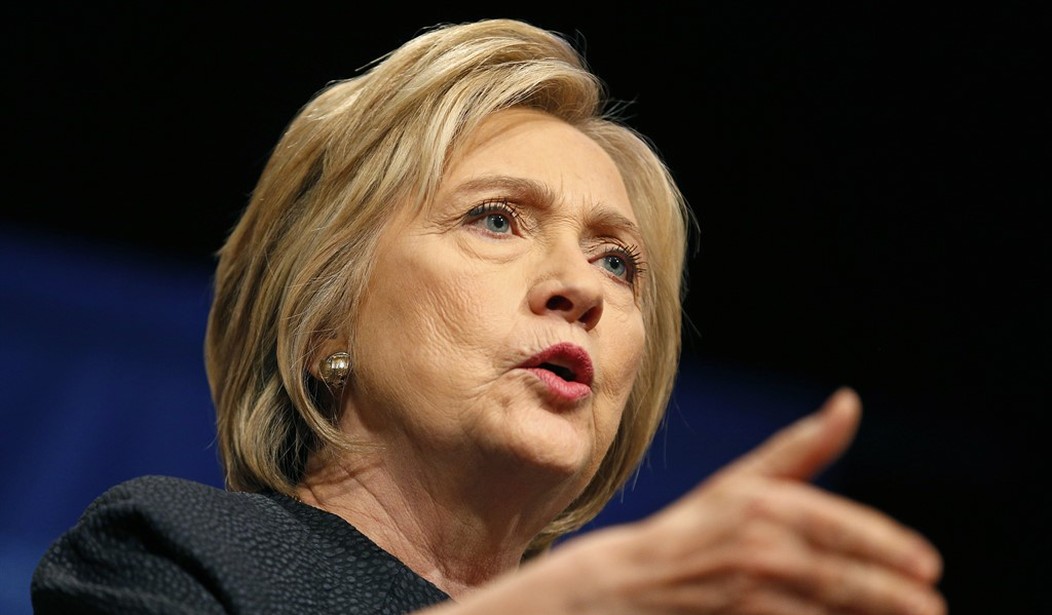WASHINGTON -- The essential issues in Hillary Clinton's widening email scandal have always been her judgment and her imperious belief that the government's rules didn't apply to her.
After multiple denials from Clinton that she did anything wrong, insisting she had broken no rules by using a private email system, the State Department's inspector general released a stinging report Thursday, criticizing her for using a high-risk, unsecured home-computer system to send emails that, we now know, contained classified information.
In a lengthy report, the IG said that "beginning in late 2005 and continuing through 2011," the department had toughened its rules in its Foreign Affairs Manual, issuing "various memoranda specifically discussing the obligation to use department systems in most circumstances and identifying the risks of not doing so."
Clinton decided that those rules were for everyone else, but not for Queen Hillary.
At a time when sinister foreign hackers were plotting to break into the government's computer systems here, State Department officials were warning employees to use only secure internal systems when sending highly sensitive information, known as SBUs.
The report said that if employees were unsure whether the information they wished to transmit through an outside network could compromise classified material, they should seek advice from the department's team of security specialists.
After an exhaustive investigation, the IG said he found no instance that Clinton had ever asked for help, "despite the fact that emails exchanged on her personal account regularly contained information that was marked as SBU."
Recommended
Another reason rules governing emails were tightened was to preserve each secretary's record for history while in office. But Clinton's aides fiercely fought even that simple objective, perhaps attempting to hide parts of her record from any future scrutiny.
When two officials voiced concerns about preserving her records, a Clinton aide sharply rebuked one of them, saying the decision was reviewed by the department's attorneys, warning the staffer "never to speak of the secretary's personal email system again," the report said.
The IG's investigators could find no evidence that such a legal review had ever occurred.
A separate and in some ways deeper investigation by the FBI continues to dig into the scandal, questioning top State Department officials and Clinton advisers, and her chief aides are said to have cooperated with the probe.
This is in sharp contrast to the IG's investigation, where Clinton and her senior aides flatly refused to talk to his investigators.
Meantime, FBI Director James B. Comey says he has set no "external deadline" for completing his investigation, but officials say he expects to question Clinton soon.
Still, the severity of the IG's report on how Clinton has mishandled sensitive communications during her tenure at State will likely raise further questions about her fitness for the presidency.
The former secretary's obsession with secrecy and her high-handed belief that rules are for little people, but not for her, have fed a growing political perception in the electorate that she is dishonest and untrustworthy.
The day after the IG's report was released, newspapers across the country wrote editorials condemning her refusal to take necessary steps to secure the nation's highest national security information.
In an editorial titled "Ms. Clinton's willful misjudgments," The Washington Post said, "There is no excuse for the way Ms. Clinton breezed through all the (internal) warnings and notifications. While not illegal behavior, it was disturbingly unmindful of the rules. She repeatedly ignored warnings not to use private email during her tenure as secretary of state."
One of the warnings, the newspaper points out, occurred on March 11, 2011, when "an assistant secretary sent a memorandum on cybersecurity threats directly to Ms. Clinton, noting a 'dramatic increase' in attempts to compromise personal email accounts of senior department officials, possibly for spying or blackmail."
But that didn't stop her reckless practice of discussing sensitive information over her unsecured home computer.
Talk about hubris on steroids, even when she was urged by security specialists to immediately turn over her work-related emails when she stepped down in February 2013, she took her sweet time doing so.
She turned over more than 30,000 records nearly two years later, but only after the State Department repeatedly pressed her on it in order to meet the demands of a House committee investigation into the 2012 terrorist attacks on the U.S. consulate in Benghazi, Libya.
There were some 31,000 other emails that Clinton said were personal in nature and that she had deleted. But what was actually deleted over this nearly two-year period, and did it include records of her actions that she didn't want to become public?
Could her erased emails have had anything to do with the Obama administration's unexplained negligence in its handling of the Benghazi attacks and attempted cover-up?
We may never know the full answers to these and other critical questions, unless the FBI and its skilled computer technology team have found a way to retrieve Clinton's missing messages.

























Join the conversation as a VIP Member